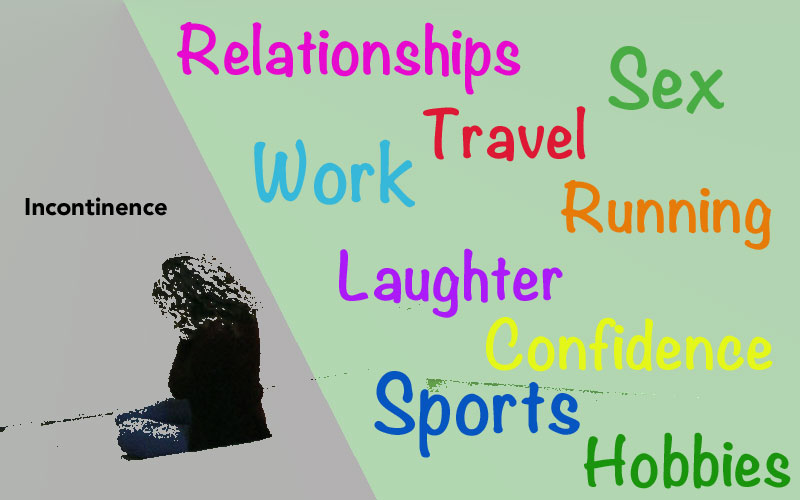For people with stress incontinence, it’s more than an infrequent annoyance; it’s something that can take over your whole life. It lurks around every corner so that you’re always worried about the next “oops” incident. The condition can be debilitating for many sufferers, affecting everything from participation in physical activities to mental health.
What is Stress Incontinence?
Stress urinary incontinence is defined by the ICS as the observation of involuntary leakage from the urethra, synchronous with exertion/effort or sneezing or coughing. This is usually due to pelvic floor weakness or prolapse.
Other types of urinary incontinence include urge incontinence and overflow incontinence. From the Canadian Women’s Health Network, urge incontinence is the sudden urge to urinate; a loss of control before reaching the bathroom, while overflow incontinence is when an overfull bladder constantly leaks.
Urinary Incontinence Impacts Quality of Life
Historical evidence shows that urinary incontinence affects every aspect of a woman’s life – from relationships, to work, travel, sports, and hobbies. Essentially, this is a withdrawal from the activities of life.
Although there are treatment solutions available for forms of incontinence including stress incontinence, there is such a large stigma attached to the condition that it often goes untreated. Incontinence sufferers withdraw from activities primarily because of the fear and anxiety they feel over someone else finding out about their condition, and not because of management of the condition itself. No one wants to feel embarrassed about loss of a bodily function.
Relationship Problems – those with incontinence of any kind may feel a negative impact on relationships, especially couple relationships. There may be a tendency towards reduced intimacy, affection, or physical proximity. Some women even feel that their incontinence may be affecting their relationship to the point of marriage breakdown or divorce.
Exercise and Sport – Women suffering from urinary incontinence may opt out of activities that they love – such as a favourite sport, or running around with the kids, because of the anxiety they feel around the possibility of an embarrassing leak. Pivoting quickly on a basketball court, kicking a soccer ball, or giggling when a child is chasing you just might be the trigger for a leak. Because you just never know, women are opting out of these activities altogether, ultimately moving toward a more sedentary lifestyle. Not only does this affect them physically (possibly leading to more serious physical conditions associated with inactivity), but it also takes an emotional toll as their bodies miss the physical outlets which provide a healthy dose of endorphins to bolster moods.
Employment – urinary incontinence holds no restrictions, and can cause an issue anywhere at any time, including the workplace. Women managing urinary incontinence may lose their confidence at work, may have difficulty concentrating on the work at hand, and may require days off to manage the physical and psychological impact of surprise leaks.
Travel and Holidays – because incontinence is at the forefront of their concerns, women will often forgo vacations or will feel like they have to plan them around the risk of a leak. Adventure holidays or destinations that may take someone away from a bathroom for an extended period of time might not feel like an option.
Sexual Function – women who have various forms of incontinence may feel embarrassed or depressed and can be less likely to engage in sexual activity. Those who do may also have to manage coital incontinence, ie. leaking during sex.
Women with incontinence of any kind live with an underlying fear that others will find out about their condition. Life becomes a series of plans in effort to avoid a potential leak, and more importantly, to avoid revealing accidental leaks to other people. This often leads to a withdrawal from the activities of life that bring people joy, making the health issue not only a physical problem, but a highly emotional one as well.
Resources:






